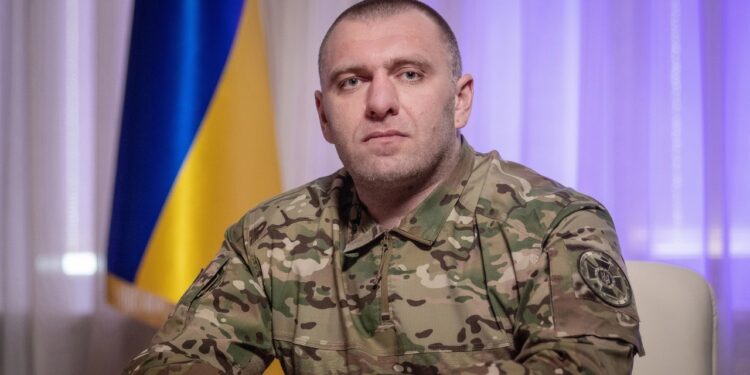In the shadows of Ukraine’s expanding cyber and drone warfare programme stands Vasyl Malyuk, the chief of the Security Service of Ukraine (SBU) and the strategic architect behind a series of audacious strikes deep inside Russian territory. At the heart of this new offensive doctrine is “Spiderweb”—a covert operation targeting Russian military airfields, radar systems, and logistical hubs with pinpoint drone attacks and digital infiltration.
Malyuk, a former anti-corruption investigator turned intelligence chief, has emerged as one of the most influential figures in Ukraine’s evolving military strategy. Appointed head of the SBU in 2022, he has quietly reshaped the agency’s role from internal security to full-spectrum asymmetric warfare. Under his leadership, the SBU has expanded its reach into offensive cyber capabilities and developed a drone-based strike capacity capable of operating far beyond Ukraine’s borders.

The “Spiderweb” operation—a codename now circulating in European defence circles—marks a strategic shift. Rather than merely repelling Russian forces at the front line, the campaign aims to destabilise Russia’s military infrastructure from within. Over the past several months, drone strikes have hit airbases as far away as Pskov, damaging long-range aircraft and forcing Moscow to reconsider the vulnerability of its rear positions.
These operations are designed not only to degrade Russia’s warfighting capabilities but to project a sense of strategic disorientation—an invisible web, woven by unseen hands. “We want them to feel vulnerable everywhere,” said a Ukrainian defence official familiar with Malyuk’s planning, speaking anonymously. “It’s psychological warfare, as much as physical.”
Malyuk’s rise has been quiet but relentless. At just 40, he represents a new generation of Ukrainian leadership—young, digitally fluent, and fiercely pragmatic. Unlike more public figures in Ukraine’s political and military elite, Malyuk rarely speaks to the press and prefers to operate behind layers of operational security. But insiders describe him as a methodical and innovative strategist, one who understands that modern warfare is fought as much through networks and code as through artillery and tanks.
The results have been striking. In addition to physical sabotage, “Spiderweb” has allegedly disrupted communications and air control systems on several Russian bases, according to intelligence reports shared with NATO allies. While Ukraine has not officially claimed responsibility for all incidents, Malyuk himself has hinted at SBU involvement in remarks to Ukrainian media: “Where we must reach, we do. Where we must act, we strike.”
International observers credit Malyuk’s strategy with helping to shift the narrative of the war. After months of stalemate on the ground, Ukraine’s ability to strike at the heart of Russian military infrastructure has re-energised Western support and forced Russia into a more defensive posture, even within its own borders.
Malyuk’s approach also underscores the growing role of hybrid warfare in Ukraine’s defence doctrine. Combining drone technology with cyber disruption, and layering psychological tactics on top, “Spiderweb” has become a model of 21st-century resistance.
As Ukraine continues to innovate under fire, Vasyl Malyuk remains the discreet but determined figure shaping the country’s invisible front line—an architect of disruption, threading his web across an enemy unprepared for this new kind of war.
newshub finance



Recent Comments